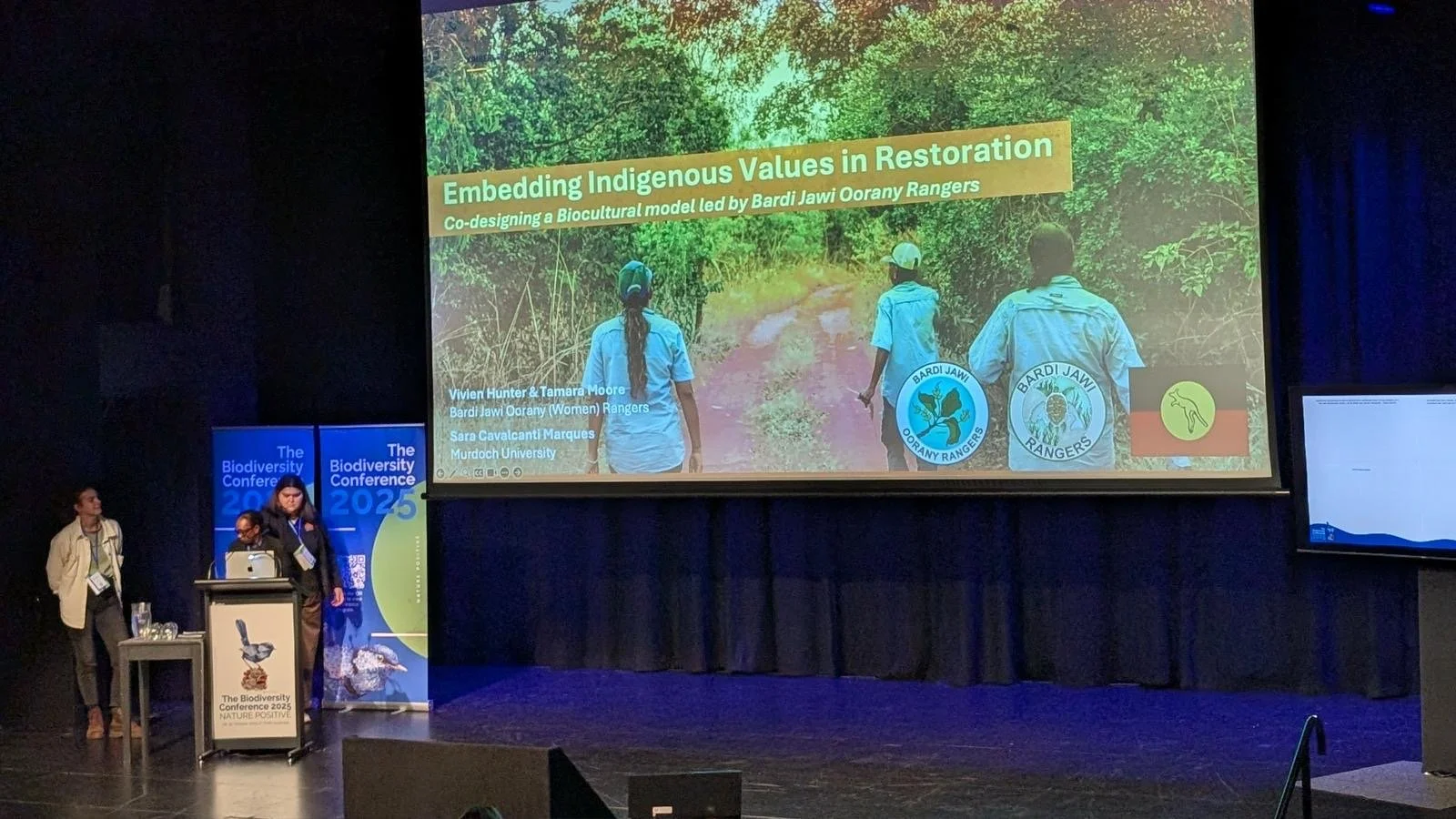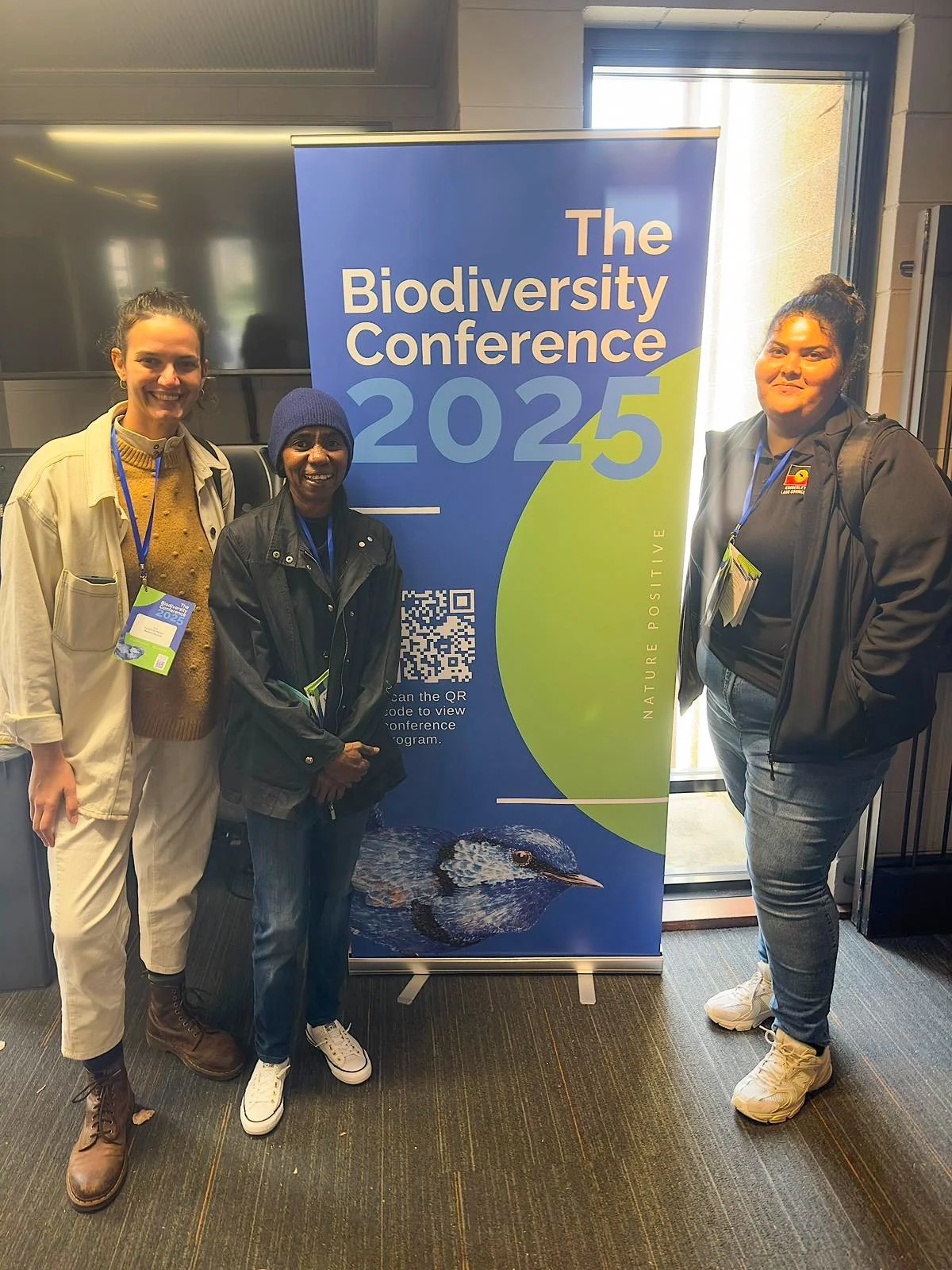Bardi Jawi Oorany Rangers Share Indigenous-Led Restoration Insights at Biodiversity Conference
From 28–30 October, the 2025 Biodiversity Conference brought together over 900 delegates on Whadjuk Noongar boodjar Country, Western Australia, to explore solutions to the urgent challenges facing Australia’s biodiversity.
Tamara Moore and Vivien Hunter from the Bardi Jawi Oorany Rangers travelled down to present alongside Sara Cavalcant Marques from Murdoch University to present on their work on a bicultural restoration research project
Their presentation, “Embedding Indigenous Values in Restoration”, highlighted the ecological and cultural significance of ‘Mayi Borden’, the Bardi language name for place of plenty fruit trees, more commonly known as monsoon vine thickets (MVTs). These naturally fragmented rainforest patches are found along the coastal dunes of the Dampier Peninsula, with 60% located on Bardi country. Though they cover less than 0.01% of land, MVTs support up to 25% of the region’s plant species, and are vital for food, medicine, tools, and artefacts. They are also culturally important sites for camping, ceremony, and law and provide freshwater sources and protection from harsh weather and cyclones.
Tamara and Vivien discussed their work on a bicultural restoration research project, an Indigenous-led initiative designed to enhance on-ground revegetation outcomes while protecting cultural and ecological integrity. The project involves a two-way co-design process, combining ecological science with Traditional knowledge to restore landscapes in a holistic way.
“We are grateful to the Conference team for supporting our attendance and providing the opportunity to share our work in restoring native vegetation,” Tamara reflected. “It was inspiring to hear presentations from others addressing similar environmental impacts and to connect with those dedicated to protecting and regenerating our natural ecosystems.”
Their presentation highlighted how Indigenous leadership and knowledge can guide Nature Positive outcomes, ensuring that restoration is not just about ecological goals but also about cultural, social, and community well-being. In a time of climate change and biodiversity loss, the work the Bardi Jawi Oorany Rangers demonstrates the power of bicultural restoration as a resilient and holistic approach to caring for Country.



